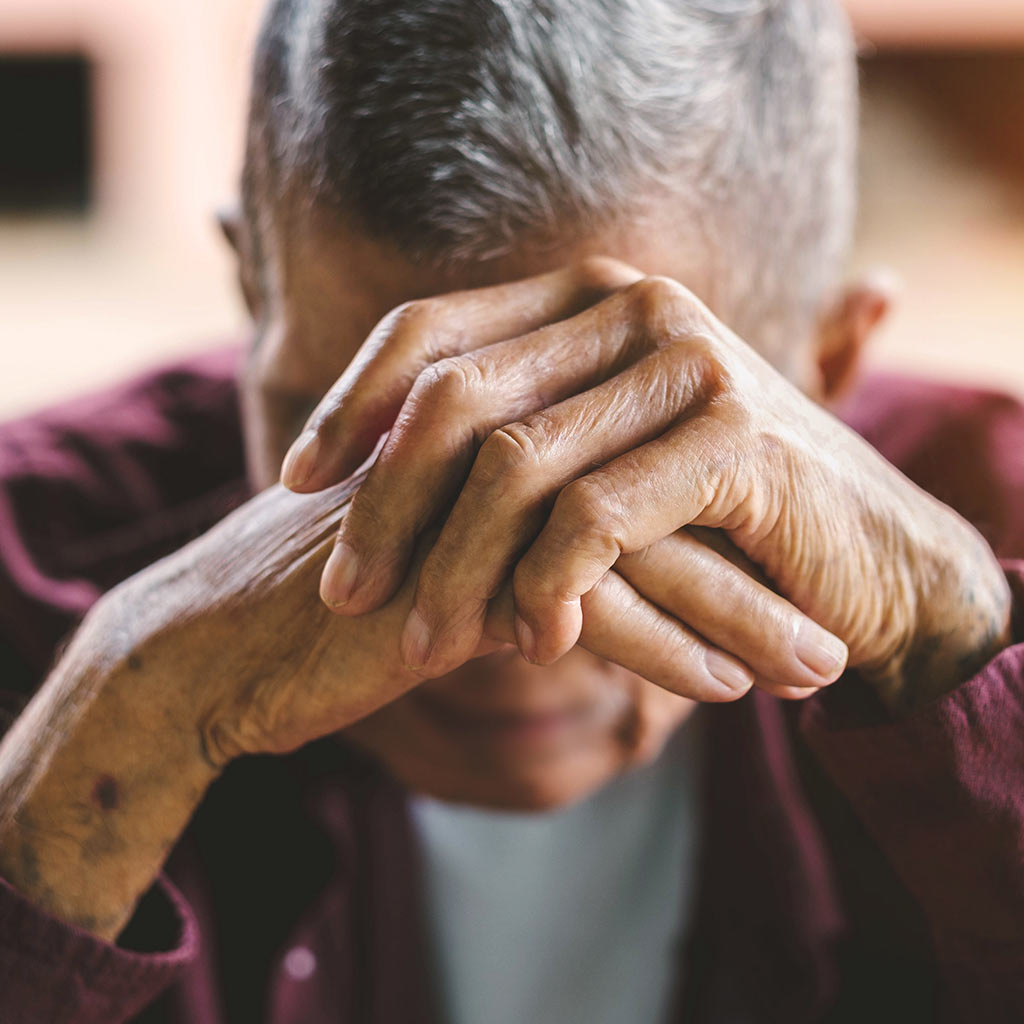Nursing Home Abuse & Neglect

Investigations and Protection for Elderly Nursing Home Residents
As difficult as it is to move an elderly or infirm loved one into a nursing home so they can receive the care they need, the anxiety is compounded if a nursing home resident later complains or shows signs of abuse or neglect. It is a potentially deadly situation that should never be ignored.
The attorneys of SI Elder Law can provide assistance if you suspect that a resident of a Southern Illinois nursing home is being subjected to neglect or abuse. We investigate allegations of elder abuse and neglect and, when substantiated, we move swiftly to end the mistreatment, obtain any medical assistance the victim requires, and obtain compensation for the abuse victim and/or their family.
The attorneys of SI Elder Law can provide assistance if you suspect that a resident of a Southern Illinois nursing home is being subjected to neglect or abuse. We investigate allegations of elder abuse and neglect and, when substantiated, we move swiftly to end the mistreatment, obtain any medical assistance the victim requires, and obtain compensation for the abuse victim and/or their family.
Contact Us
How we serve you better.
The Illinois Nursing Home Care Act, as well as federal law, establishes nursing home residents’ rights and protections for the elderly.
When a loved one is injured as a result of negligence or abuse by nursing home staff, the attorneys at SI Elder Law, LLC, are here to pursue all avenues necessary to assist, including obtaining the compensation your loved one deserves.
We sympathize if you have been confronted with the shock, grief, anger and confusion that follow the realization that someone you love may have been abused or neglected in a nursing home. But now is the time to take action.
If you suspect one of your loved one’s is a victim of nursing home abuse and neglect, any delay can be dangerous. Contact us at SI Elder Law today for a free consultation on your case call us at (618) 997-3500.
To learn more about Nursing Home Abuse and Neglect, continue reading below.
If you suspect one of your loved one’s is a victim of nursing home abuse and neglect, any delay can be dangerous. Contact us at SI Elder Law today for a free consultation on your case call us at (618) 997-3500.
To learn more about Nursing Home Abuse and Neglect, continue reading below.
Typical Types of Nursing Home Neglect and Abuse
If a loved one of your shows signs of these injuries, ailments or mistreatment, SI Elder Law can help you investigate:
Bed sores are painful and potentially deadly injuries caused by remaining in one position for too long. They are also known as “pressure sores” or “decubitus ulcers.” Bed sores should never occur in a nursing home. Left untreated, they may lead to infection.
is a potentially deadly complication of infection that afflicts the cardiovascular system. Sepsis causes inflammation, which can lead to blood clots that impair blood flow and damage the body’s organs by depriving them of nutrients and oxygen.
Malnutrition results from the insufficient intake of nutrition, whether in the form of food or supplements. Dehydration is a lack of water and other fluids required for the body to function normally. Malnutrition and dehydration can lead to weakness that results in falls or other accidents that cause injury, or illness. Don’t ignore a nursing home resident who complains of hunger or thirst.
Poor training or lack of staffing can lead to mistakes, mix-ups, late delivery and/or wrong doses of medication. Medication errors can cause multiple complications, not the least of which is leaving an ailment, like an infection, untreated or not properly treated.
is relatively common in the elderly and infirm. Choking that causes lengthy obstruction of the airway can lead to loss of consciousness and eventually, if breathing is not restored, brain damage and death. Nursing homes should diagnose dysphagia and employ strict monitoring and other anti-choking protocols.
Nursing home residents who require mechanical ventilation are at risk of asphyxiation (lack of oxygen) if their breathing tubes are not monitored and maintained on a daily basis. Asphyxiation can quickly lead to loss of consciousness, brain damage and death. If any resident of a nursing home requires breathing tubes, or “endotracheal intubation” (EI), at least one staff member trained to maintain breathing tubes should always be on duty.
are among the most frequent causes of nursing home injury, including potentially deadly injuries like traumatic brain injury (TBI) or broken hips, an injury that elderly people seldom recover from. Nursing homes should have strictly followed fall-prevention protocols that ensure these accidents do not happen.
(third or fourth degree) are potentially deadly, particularly for the elderly and infirm. In addition to burns caused by exposure to flame, hot liquids, electrical current or sunburn, nursing home residents who are improperly restrained with straps, belts or ropes can suffer friction burns. In egregious cases of abuse, a nursing home resident may be intentionally burned with matches, lighters, cigarettes, etc.
Alzheimer’s disease and other forms of dementia cause victims to wander. “Elopement” refers to leaving the premises without authorization, whether it is a ward or dementia patients or the grounds of the nursing home. Nursing homes have a duty to keep residents secure and protect them from the potential injuries that can happen if they wander or elope.
It is against the law to restrain a nursing home resident unless it is demonstrably for medical reasons. Unfortunately, some nursing homes use restraints to control residents who have a history of falls, tend to wander or elope, or are disruptive or aggressive. Physical restraints, like belts or ropes, may leave bruises around the wrists and ankles. Chemical restraints, which are forms of sedatives, may leave the victim lethargic or confused.
“Neglect” implies refusing or failing to provide proper treatment or care. Abuse is willfully and intentionally inflicting harm. This includes various forms of:
Nursing home staff should never hit, slap, kick or otherwise strike, grab, push or pull on a resident as a form of discipline or to get their attention. Contusions (bruises), lacerations (cuts), sprains and fractures (broken bones) are signs of physical abuse that should not be ignored or explained away with vague statements.
Any unwanted kissing, touching of the genitals or breasts (groping), or sexual intercourse (rape) is sexual assault. Forcing someone to witness sexual behavior or view pornography is also sexual assault. Sexual assault victims may exhibit bruising, or may become withdrawn or averse to contact like hugging.
Inflicting mental pain, anguish, or distress through verbal or nonverbal acts constitutes emotional abuse. This may include verbally scolding, criticizing, humiliating, threatening, or otherwise harassing a nursing home resident. Emotional abuse may also include ignoring the resident, excluding them from activities, or otherwise isolating them from other residents or family, or taking and/or destroying their personal property.
Sudden changes in a nursing home resident’s bank accounts, stock holdings, the resident’s will, etc., may indicate financial exploitation and/or outright fraud or theft.
- If you think a nursing home resident is in immediate danger, either remove them from the home and get help, or phone 911 for emergency response assistance.
- Report your suspicions to a manager at the facility, but do not automatically accept assurances and excuses.
- Write down your assessment of the situation. Include anything you witnessed, and any complaints or comments by the alleged abuse victim or others at the nursing home.
- Contact the Illinois Long-Term Care Ombudsman Program to file a complaint. This division of the Illinois Department on Aging is charged with investigating allegations of abuse and neglect in state nursing homes, as well as other violations of regulations, and taking steps to resolve them. Find the Regional Long-Term Care Ombudsman Program at the bottom of this Department on Aging web page, or by phoning (866) 800-1409 or (888) 206-1327 (TTY)..
- Contact an elder law attorney who investigates nursing home abuse and neglect cases for additional assistance.

State officials have the duty to investigate complaints about nursing home abuse and neglect, and to punish those who violate residents’ rights. But an attorney from SI Elder Law can do more, including seeking restitution to you for any expenses caused by the abuse, such as medical costs, property damage, the cost of moving a nursing home resident to a new facility, if necessary, and for pain and suffering.
In the meantime, as SI Elder Law investigates the treatment of your loved one, we will be in contact with nursing home management, state officials, doctors, and others. This will indicate to the nursing home that your allegations are to be taken seriously and that you are not alone. In many cases, hearing from a nursing home abuse and neglect attorney results in immediate changes for the better, which may protect others from future abuse or neglect.
If necessary to resolve outstanding issues, we can pursue a lawsuit to hold the facility’s managers and owners accountable, and seek compensation as outlined above. Like other personal injury lawsuits in Illinois, your family’s claim in a nursing home abuse or neglect case must be filed within two years to avoid the state’s statute of limitations.
In the meantime, as SI Elder Law investigates the treatment of your loved one, we will be in contact with nursing home management, state officials, doctors, and others. This will indicate to the nursing home that your allegations are to be taken seriously and that you are not alone. In many cases, hearing from a nursing home abuse and neglect attorney results in immediate changes for the better, which may protect others from future abuse or neglect.
If necessary to resolve outstanding issues, we can pursue a lawsuit to hold the facility’s managers and owners accountable, and seek compensation as outlined above. Like other personal injury lawsuits in Illinois, your family’s claim in a nursing home abuse or neglect case must be filed within two years to avoid the state’s statute of limitations.
If a loved one of your shows signs of these injuries, ailments or mistreatment, SI Elder Law can help you investigate:
